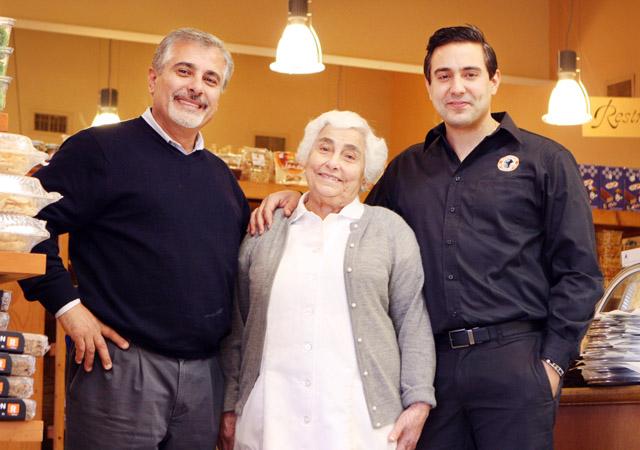Jason Smith, owner and head chef of Raleigh’s 18 Seaboard, attributes the use of local ingredients as a top reason for the restaurant’s growing success, which has seen an increase in sales every year since it opened.
While his dishes possess a worldly touch, Smith emphasized the value of using fresh, local ingredients from North Carolina. This creates a more welcoming and comforting experience for people of all backgrounds, and also stays true to Southern roots, Smith said.
Smith, a native of North Carolina, achieved his success through hands-on experience and connections made throughout his career. Smith began as a chef in Raleigh restaurants like the 42nd St. Oyster Bar, where he said he was grateful to learn from owner Brad Hurley and experience the restaurant’s fast-paced atmosphere.
Smith eventually traveled to New York City where he had the opportunity to work with Danny Meyer who, according to Smith, had an unbelievable impact on his career. Meyer is the CEO of Union Square Hospitality Group and author of Setting the Table: The Power of Hospitality in Restaurants, Business, and Life.
Smith said his interest in food stemmed from both his grandmothers’ Southern cooking and weekend trips as a kid with his dad.
“It was always an adventure Friday after school … trying different foods and seeing different places struck a chord with me,” Smith said.
While growing up, Smith’s father lived in Raleigh while his mother lived in Wilmington. Every other weekend, and before Interstate 40 was completed, Smith and his dad traveled on Route 421 trying out different food places along the way. To this day, Smith said the feeling he gets from exploring a new restaurant space is one of the greatest he has.
Smith’s passion for cooking was also inspired by his relatives in eastern North Carolina who worked on farms producing crops like soy beans and sweet potatoes.
Whether it is his cornmeal-crusted catfish or his cracklin’ pork shank, Smith uses traditional Southern ingredients from local vendors to create unique signature entrees that leave a lasting impression on his customers.
“Why would you not get the best ingredients you can and present the best you can to your guests?” Smith said. “North Carolina offers a cornucopia of incredible ingredients, and it puzzles me why other restaurants don’t use them. It can be more expensive, but it makes a huge difference if you present it in the right way. It is better in long run than getting an inferior product, and your energy is better served trying to do it that way.”
Not only does the choice to incorporate local produce benefit the state economy and provide customers with fresher, healthier food, it also pays – literally. Since opening in 2006, 18 Seaboard has increased its sales by 10 percent every year, with this year’s sales seeing a 20 percent increase.
Smith said that while he could purchase shrimp from a location like Thailand for 7 cents, he opts to buy them locally at 22 cents, a difference of about $20,000 a year.
“However,” Smith said, “I feel like my customers appreciate the fact that we get the best ingredients. They come more often, spend more money and tell their friends.”
Smith buys from a variety of North Carolina suppliers, including seafood from Pamlico Pride Shrimp and Carolina Classics Catfish and goat cheese from Prodigal Farm.
“We use a key ingredient as a focal point of the dish and pull back the layers of the direction we want to go,” Smith said. “The good thing is people trust us and enjoy the different things we create.”
This past September, 18 Seaboard purchased $13,800 from local purveyors, with most purchases accounting for seafood and produce, according to its website. So far, the restaurant has purchased more than $80,000 in seafood alone this year.
The success of 18 Seaboard also allowed Smith to open a second restaurant, Cantina 18, in Cameron Village. While he contemplates the concept for his third restaurant, Smith’s desire to use the best local ingredients will remain constant.



